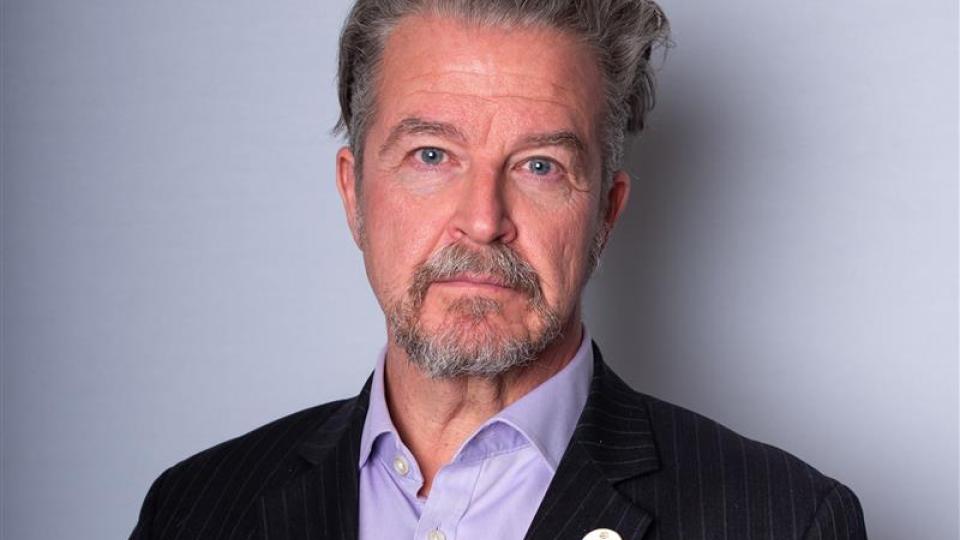International Council of Nurses on impact on global health of US withdrawal from WHO

In a 23 January article in Nursing Times, the CEO of the International Council of Nurses (ICN), Howard Catton commented on President Trump’s Executive Order to withdraw from the World Health Organization (WHO), stressing that - because of the multiple health challenges all countries are facing which require global solutions - there has never been a more important time for cooperation and collaboration.
In the Nursing Times interview, Mr Catton emphasized the critical role of the US in global health, and stressed the real impact of the US leaving WHO.
“This announcement... risks setting us back even further in terms of the objectives and the vision that people have for improvement of global health.
When it comes to global health challenges or threats, no nation is an island...To put it more simply: viruses don't stop at national borders to show their passport.”
When it comes to infectious disease, WHO has been leading really important work to contain the recent [Marburg virus disease] outbreak in Africa. We've had Mpox as well, both of these have happened since the [COVID-19] pandemic, and the pandemic, of course, is probably the mother of examples of how an infectious disease has ramifications and can shake the foundations of health globally.”
While the USA is the top donor to WHO, Mr Catton said the concern is more than a financial one. Some American health care staff have expressed their worries about loss of access to international experts, research and scientific developments.
“They're important in terms of funding, but they're also important in terms of their health and scientific and research knowledge and expertise that they bring through the different US health agencies and organizations, and through the staff who are American citizens who work for WHO as well.
From a US perspective, I think that the national health interest will be best served by being part of WHO... Is WHO a perfect organization? There's no such thing.
I absolutely can recognize that there are areas in the way in which WHO works… no doubt that there are areas where there could be important and helpful reform and improvements. But our hope very much is that, following the announcement that we've had, there will be intense negotiations and discussions taking place between representatives of the US and WHO.
The ultimate prize here is improved global health for everyone.”
Mr Catton also stressed the impact that a US withdrawal could have on global vaccination rates.
“...it could mean that there are kids who will not get vaccinations who otherwise would have done, people who won't have access to healthcare that they would have.”
Separately, Jennifer Mensik Kennedy, PhD, RN, NEA-BC, FAAN, President of American Nurses Association (ANA) said:
“ANA is actively reviewing the flurry of EOs issued recently by President Trump in his first days in office and the impact of those orders on public health and nursing. We have learned through our experiences that devastating diseases have no geographic boundaries and as a global community we have come together to solve those crises when they occur and identify early potential, looming health issues to prevent them from having widespread adverse effects. We are particularly focused and concerned about the EO related to withdrawing from the World Health Organization and the adverse impact that withdrawal may represent to health care in the United States and globally. “
The United States is a founding member of WHO, which brings together 194 countries to achieve better health for all. WHO Director-General Tedros Adhanom Ghebreyesus commented on Trump’s Executive Order, saying “WHO plays a crucial role in protecting the health and security of the world’s people, including Americans, by addressing the root causes of disease, building stronger health systems, and detecting, preventing and responding to health emergencies, including disease outbreaks, often in dangerous places where others cannot go.”
President Trump has issued an Executive Order to withdraw the United States from the WHO, “due to the organization’s mishandling of the COVID-19 pandemic… and other global health crises, its failure to adopt urgently needed reforms, and its inability to demonstrate independence from the inappropriate political influence of WHO member states." The order also states that WHO “demand unfairly onerous payments from the United States, far out of proportion with other countries’ assessed payments”.
The International Council of Nurses has been in official relations with WHO since its founding in 1948. ICN has worked collaboratively with WHO on many projects of mutual interest over the years. As a non-State actor, every year ICN actively participates in the WHO Executive Board meetings and the World Health Assembly to represent the voice of nurses and nursing to advance global health and promote public health.
ICN is currently working with WHO on the development of the next State of the World’s Nursing report, the achievement of the Sustainable Development Goals, including universal health coverage, WHO’s work in health emergencies, the WHO Global Health and Peace Initiative, pandemic prevention, preparedness and response; climate change and health; and strengthening the WHO Global Code of Practice on the International Recruitment of Health Personnel, amongst other issues. Read more about ICN’s work with WHO here.